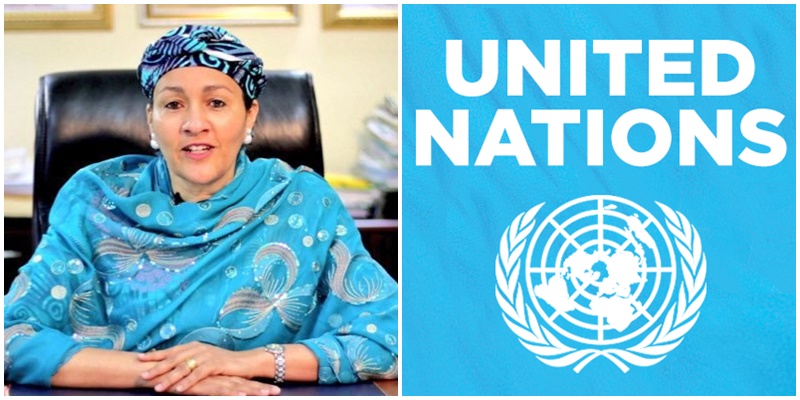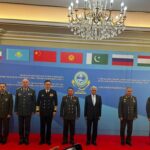UNITED NATIONS, Jan 26 (APP):UN deputy chief Amina Mohammed said on return from a visit to Afghanistan that during her intense meetings with Taliban authorities she pushed hard to try to reverse their recent actions limiting the rights of women and girls to education and work while highlighting the holy Quran’s first word “Iqra” (read) and Islam being a “religion of light”, but did not make much progress towards the goal.
Ms. Mohammed, the deputy secretary-general who led a delegation of senior UN officials, told a press conference on Wednesday that one of the biggest challenges in dealing with the Taliban officials, who are loyal to the emir and the emirate, is how to bring them “from the 13th century to the 21st.”
But Ms. Mohammed, a former Nigerian cabinet minister, said that the international community will not abandon Afghan females who are deprived of their rights. “It’s not when it gets hard that we drop off,” she said, adding, “It’s when it gets hard that they see more of us, and we are there in solidarity with them.”
During the 4-day trip across Afghanistan, which included Kandahar, she met four Taliban ministers, including the acting foreign minister and a deputy prime minister, and said they spoke “off one script” during meetings with her delegation last week. Th delegation also met former Afghan President Hamid Karzai and former Chief Executive Abdullah Abdullah.
She was accompanied by Sima Bahous, the executive director of UN Women, and the Assistant Secretary-General for UN political, peacebuilding and peace operations, Khaled Khiari.
Before arriving in Kabul, the top-level UN delegation visited Indonesia, Turkey, Persian Gulf states and Saudi Arabia, where she said there was wide support against the Taliban actions in relation to women’s rights
She said there is a proposal for the U.N. and the Organization of Islamic Cooperation (OIC) to host an international conference in mid-March on women in the Muslim world.
“It’s very important that the Muslim countries come together,” the deputy secretary-general said.
“This would bring in the issues of Afghanistan, but also the region,” Ms.Mohammed said. “I often say this, when Malala [Yousafzai] was shot, she was shot in Pakistan. So there is a regional problem.”
The UN deputy chief said that as the Taliban have taken away rights, they assured they would later revisit the issue. She said she pressed officials for a specific timeline and said she was told only “soon.”
On their part, the Taliban officials, she said, sought to stress things that they say they have done and did not get recognition for — and what they called their effort to create an environment that protects women.
“It was clear they (Taliban) want recognition”, Ms. Mohamed said, adding that they pointed to their success in eradicating corruption and eliminating poppy production while extending a general amnesty.
“All of this, we said, was not sufficient in terms of its implementation,” Ms. Mohammed said.
But she said, “Recognition is one leverage that we have and we should hold onto.”
Asked by APP correspondent whether she found any area relating to women’s rights in which progress could be made, Ms. Mohammed said it was going to be tough to get the Taliban back into the space needed for the protection and upholding of women and girls’ rights, adding, “That’s what I want us to do.”
“So if there’s anything that I would say we got from the Taliban, I think it’s very important that they are putting a law in there against gender-based violence,” the UN deputy chief said.
“That for me is a big plus and I want to leverage it because gender-based violence was increasing, is increasing in Afghanistan. And for anyone that has to be in a position where you are incarcerated in your houses, (as) we were in COVID, but this is now because they’re taken out of the workplace and are suffering gender-based violence, and there’s a law against this. And I want to hold the Taliban to account for implementing that law.
“The same thing with inheritance: This is also something that, you know, everything was taken away. All your rights taken away in inheritance for women. If this is put back according to Islam, what’s mine is mine and what’s his is mine. And so we get double. And if we can implement that, I think that’s a good thing.
That a woman is not being traded off for blood money, it’s huge. I mean, we were just… What were we? Nothing. If that was the case. So yes, I saw two or three things; I came back, and I would say… I’d only believe them if I see them implemented.”





